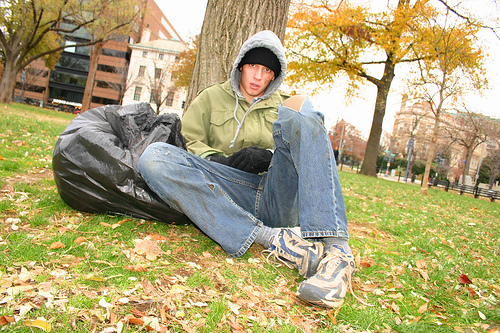
Almost half of all homeless men whose case histories were reviewed by researchers at St. Michael’s Hospital in Toronto, Canada, had suffered at least one traumatic brain injury (TBI) in their life, and 87 per cent of those injuries occurred before the men lost their homes.
Among the causes of the brain injuries were:
- Violence (60 per cent)
- Sports and recreation (44 per cent)
- Car accidents and falls (42 per cent)
“It’s important for health care providers and others who work with homeless people to be aware of any history of TBI because of the links between such injuries and mental health issues, substance abuse, seizures and general poorer physical health,” said the lead author , Jane Topolovec-Vranic, MD, a clinical researcher in the hospital’s Neuroscience Research Program
The fact that so many homeless men suffered a TBI before losing their home suggests such injuries could be a risk factor for becoming homeless added Dr. Topolevec-Vranic, which she said “makes it even more important to monitor young people who suffer TBIs such as concussions for health and behavioral changes.”
The researchers looked at data on 111 homeless men ages 27 to 81 years old who were recruited from a downtown Toronto men’s shelter and found that 45 per cent had experienced a traumatic brain injury, and of these, 70 per cent were injured during childhood or teenage years. In men under age 40, falls from drugs and alcohol blackouts were the most common cause of traumatic brain injury while assault was the most common injury leading to a TBI in men over 40 years old.
“Recognition that a TBI sustained in childhood or early teenage years could predispose someone to homelessness may challenge some assumptions that homelessness is a conscious choice made by these individuals, or just the result of their addictions or mental illness,” said Dr. Topolovec-Vranic.
The study was funded by the Canadian Institutes of Health Research and the Ontario Neurotrauma Foundation and published in the journal CMAJ Open.





